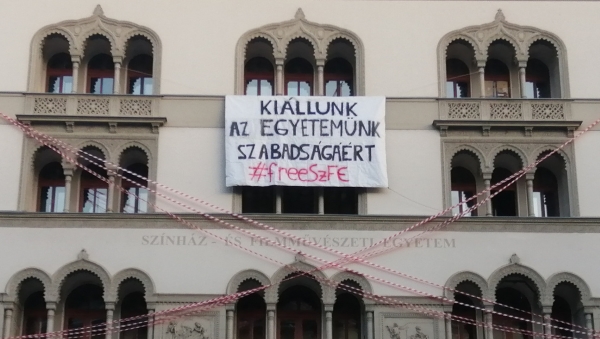1. The legal basis proposed by the Hungarian government for declaring a state of terror threat is an essentially boundless, undefined notion that ties the government’s emergency powers to some unspecified, abstract threat of terror, the factual soundness of which cannot be verified even retrospectively. The proposal does not even clarify whether the threat of terror has to occur within Hungary for the government to be able to declare the state of terror threat. The bill entitles the government to take emergency measures for an exceptionally and unjustifiably long period, i.e. sixty days, even though most police and security experts agree that such measures could be necessary only for a limited period and in well-specified locations. Furthermore, the measures proposed by the government are unreasonable, both separately and collectively, for effective action in case of a terror attack or threat thereof, even while they severely constrain the rights of citizens. The government’s proposal falls short of professional standards insofar that it fails to clearly specify both the concepts that it employs and the applicable domains of institutional responsibility.
2. By this time, the government has created such a public atmosphere in which proper public and professional deliberation about the questions raised by the European terror attacks is all but impossible. The nearly yearlong government-mandated campaign has been systematically fostering fear of refugees and of terrorism, and has tightly linked these two phenomena together from the very beginning.
Absurdly, the government has attempted to classify and keep from public view the proposed text of the amendment of the Fundamental Law and of the Law on National Defense for thirty years, so that even the parliamentary parties involved in the negotiations could access the proposals only under a pledge of secrecy. And, even though the proposal was leaked, it has not yet been officially disclosed up until this day.
3. There are good reasons to believe that the questions raised by terrorism can be properly answered simply by reviewing and updating the currently existing legal framework. However, the government has not so much as made any attempt to find a solution within the ordinary constitutional frameworks. To the contrary, it intends to add another, novel form of state of emergency to the five different types of state of emergency already established under the Fundamental Law, which would empower the government to set aside general constitutional procedures in case of a terror threat.
The proposal offers no guarantees whatsoever that the new powers could be used only under exceptional circumstances; the government can empower itself, without the assent or approval of any other institution established by the constitution, to exercise government by decree for two full months. Whether the putative threat of terror obtains is to be judged solely government that is to have the power to declare the state of terror threat, and no other agency can oversee or hold it to account. Provided that it so judges, the government can introduce the state of terror threat and take emergency actions for sixty days without consent or oversight by any other agency established by the constitution. Other institutions, such as the Parliament, are to lack the right even to intervene and suspend the state of terror threat for sixty days.
4. There is no reason to trust this government to exercise self-restraint, given that it has already established and introduced in the fall of 2015 the so-called “state of crisis due to mass migration” that has a lot in common with states of emergency. Even though the legal bases of keeping this state in force have been absent for months now, it is still in force in six counties.
5. Should there be another wave of refugees in Hungary, declaring and introducing a state of terror threat would serve the government’s interest most by depriving the pubic of access to channels of communication and information, and by concealing the under-preparedness of Hungarian authorities.
In EKINT’s view, the proposed amendment of the Fundamental Law has to be rejected, and public and expert deliberation on the subject of counterterrorism must be started anew, on the basis of a realistic assessment of current threats. It is the government’s responsibility to provide a comprehensive analysis of the actual level of threat of terror facing Hungary, and to make this analysis, or as much of it as possible, available to the general public.

László Majtényi: There is stink
László Majtényi’s essay in Élet és Irodalom on 2 Februar 2018.




